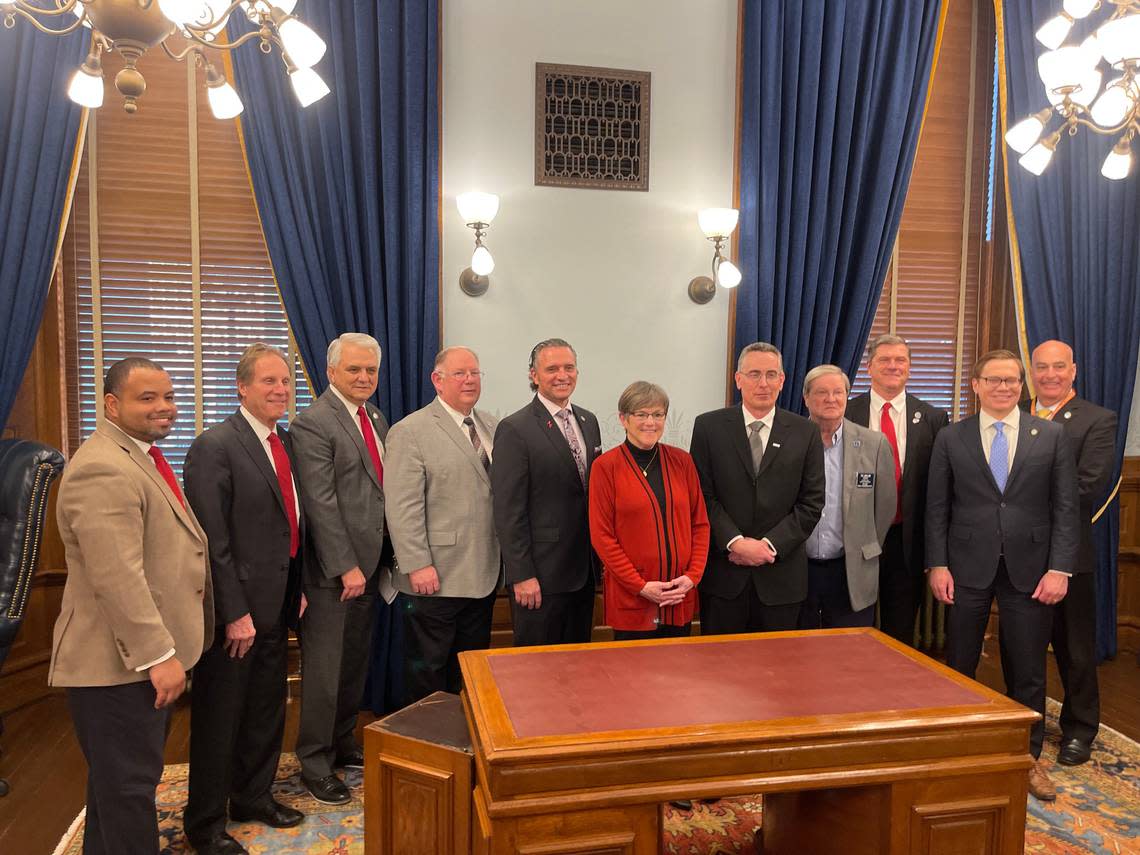Wichita’s mammoth microchip factory plan is a socialist plot — don’t tell Congress | Opinion

The plan for a mammoth $1.8 billion, government-subsidized semiconductor factory near Wichita is an exercise in socialism.
It’s a textbook case of government intervention in the economy to build a domestic industry that is vital to America, but which free enterprise has failed to provide.
On Thursday, Kansas officials — Republican and Democrat — gathered at the Statehouse to announce a $304 million government-aid package for the plant.
About the same time, our entire congressional delegation voted for passage of “House Concurrent Res. 9, Denouncing the Horrors of Socialism:”
Be it Resolved by the House of Representatives (the Senate concurring), That Congress denounces socialism in all its forms, and opposes the implementation of socialist policies in the United States of America.
The final vote was 386-86, with 14 abstentions.
So it’s ironic that Kansas, on the same day, was dabbling in socialism.
The state Finance Council, made up of our Democratic governor and leaders of our Republican-dominated Legislature, approved the state subsidy agreement with Integra Technologies, a Wichita company that manufactures and tests microchips.
State support, coupled with yet-to-be-announced local subsidies, is required for Integra to even apply for many millions more in financial aid from the federal government under the CHIPS and Science Act, passed by Congress last year (the same Congress that denounces socialism in all its forms).
The act provides $52.7 billion in semiconductor subsidies, $39 billion earmarked for manufacturing.
Integra’s president, Brett Robinson, stated flat-out that the company can’t build the factory without CHIPS money. The contract for state subsidies literally requires Integra to apply for and get federal funding, or the deal is off.
In 2008 when Republicans were decrying Barack Obama as a socialist, I asked the president of the Kansas Socialist Party if Obama really was one and he laughed in my face. He said he never heard Obama advocate for workers owning the means of production.
Integra, after multiple rounds of corporate ownership, emerged as employee-owned, so workers there actually do own the means of production.
Corporate chip makers have nearly tanked American production by moving manufacturing overseas to take advantage of lower labor costs.
In 1990, the U.S. share of semiconductor manufacturing worldwide was 37% and all Asian countries put together were at 19%, according to a report from the Semiconductor Industry Association.
By 2020, U.S. manufacturing fell to 12% and heavily subsidized Asian companies, in Taiwan, South Korea, mainland China and Japan, accounted for 73% of the world’s chips.
During that period, communist China went from zero to 15% market share and is projected to be producing a fourth of the global chip supply by 2030.
Supply-chain problems caused by the COVID-19 pandemic showed how fragile the current system is. In 2021 and 2022, major U.S. auto makers had to cut production and hold nearly completed vehicles because they couldn’t get enough chips.
Members of the Eagle editorial board met recently with representatives of the Taipei Economic and Cultural Office. The director general of the Denver office, Bill S.C. Huang, told us that U.S. F-16 fighter jets are currently being ferried to Taiwan in groups to get the latest chip upgrades installed.
Taiwan is one of our staunchest allies, but a precarious one, being situated just off the coast of mainland China, which still considers it a rebel province to be annexed.
So bravo to our state government, for recognizing that the nation needs microchips, pronto, and the free market won’t get it done.
Standing at the podium with Democratic Gov. Laura Kelly and Lt. Gov. David Toland at Thursday’s announcement were several Republican stalwarts, including Senate President Ty Masterson of Andover, and House Speaker Dan Hawkins and Rep. Patrick Penn of Wichita.
So watch out who you’re calling a socialist, because these days, that’s a pretty big tent.
